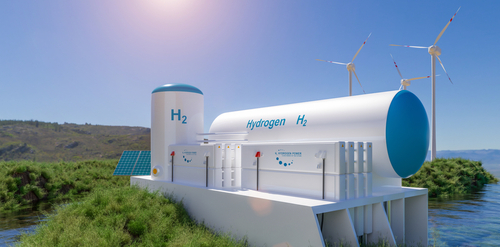
The University of Pittsburgh and Peoples Gas, a natural gas service provider, have partnered to study the potential of safely and securely transporting hydrogen through natural gas systems as a future energy source.
Hydrogen has the potential to supplement natural gas in combustion appliances or fuel cells.
The university’s Swanson School of Engineering and Peoples’ engineers will examine existing information and data on the distribution of hydrogen with a focus on technical issues concerning natural gas pipelines to transport hydrogen or a blend of hydrogen and natural gas. The next step will be a pilot project to test the impacts of hydrogen on Peoples’ natural gas distribution infrastructure.
It is unknown how hydrogen affects pipeline materials and if it can safely be transported through existing infrastructure.
“Although much progress has been made over the past decades, further research and testing are needed for the safe and affordable implementation of carbon-neutral hydrogen technologies,” Brian Gleeson, Harry S. Tack professor and University of Pittsburgh Department of Mechanical Engineering and Materials Science chairman, said.
The Swanson School of Engineering has six departments: bioengineering, chemical and petroleum, civil and environmental, electrical and computer, industrial, and mechanical and materials science.
Peoples serves approximately 750,000 homes and businesses in Western Pennsylvania, West Virginia, and Kentucky.